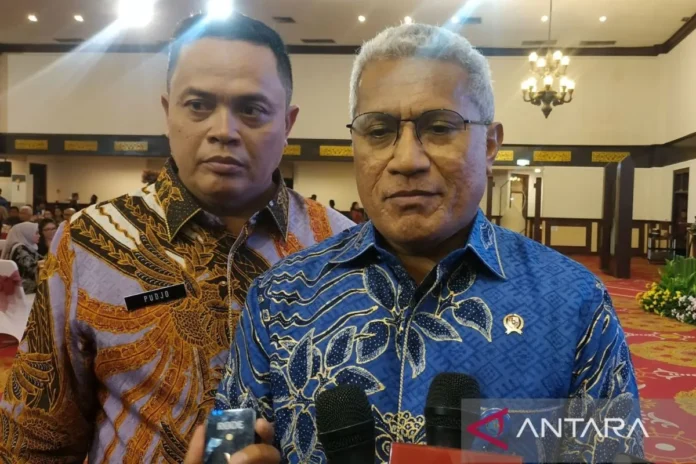Jakarta (BERITAPOLITIK.ONLINE) — In a recent development, the Head of the Indonesian National Narcotics Agency (BNN), Marthinus Hukom, has voiced his support for the Constitutional Court’s decision to dismiss a plea seeking the legalization of marijuana for parents of cerebral palsy patients.
This decision came after Pipit Sri Hartanti and Supardji, parents of a child suffering from cerebral palsy, submitted a request for the examination of Law No. 8 of 1976 concerning the ratification of the 1961 Single Convention on Narcotic Drugs and its amending protocol.
Speaking at the commemoration event marking the 22nd anniversary of BNN in Jakarta on Friday (22/03/2024), Marthinus emphasized the medical and ethical considerations behind the ban on marijuana.
He highlighted the adverse neurological effects of excessive marijuana use and underscored the lack of medical benefits supported by research findings. From an ethical standpoint, Marthinus pointed out the significant potential for dependency associated with marijuana use, questioning the rationale behind its legalization.
Previously, the Constitutional Court rejected the plea submitted by Pipit Sri Hartanti and Supardji, citing that narcotics classified as Group I substances (including marijuana and its derivatives) are only permissible for scientific research purposes and not for therapeutic use.
This decision was based on the potential risk of dependency, as affirmed in Constitutional Court Decision No. 106/PUU-XVIII/2020, which highlighted the absence of comprehensive studies post-decision regarding marijuana or cannabis use for healthcare services.
In response, Marthinus echoed the court’s call for the government to conduct specialized research on marijuana’s medical applications in Indonesia to address public aspirations and humanitarian concerns regarding its usage. Such research aims to provide rational and scientific insights into the matter, ensuring informed decision-making.
The Constitutional Court’s decision to reject the plea for marijuana legalization for cerebral palsy patients has garnered support from the BNN Chief, Marthinus Hukom. While underscoring the medical and ethical implications, Marthinus emphasized the need for comprehensive research to inform future decisions on marijuana’s medical use in Indonesia.






